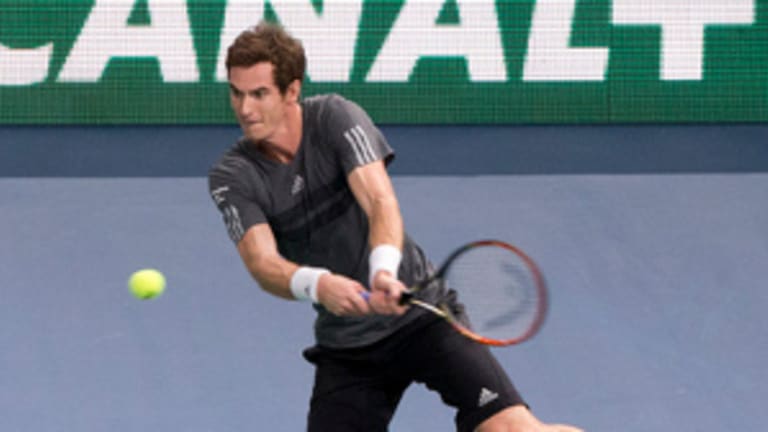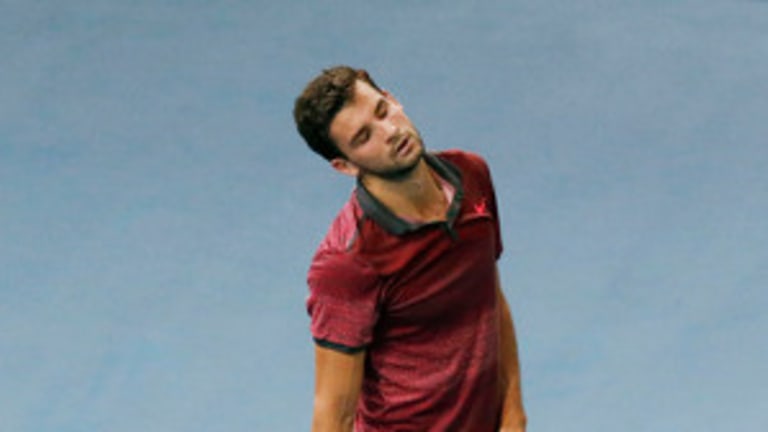Immediately after Andy Murray wrapped up an impressive 6-3, 6-3 win over Grigor Dimitrov at the Paris Masters today, the familiar marker was thrust into the Scot’s hand so that he might perform a trick that by now has become a tedious cliché: Writing his name or some message on the lens of a courtside camera.
Murray signed his name and added: Bad Year!
He was being ironic. For Murray’s win today secured his place in the upcoming ATP World Tour Finals, which begin in London on November 9. The achievement brings to an end an autumnal death march during which Murray, who was ranked outside the Top 10 after the U.S. Open, has re-inserted himself into the conversation that takes place at the apex of the game.
Since he was beaten in the quarterfinals at Flushing Meadows, Murray has been a non-stop tennis machine, seemingly obsessed with making the elite eight who will play in London. Paris marks his sixth event since the U.S. Open; by contrast, Novak Djokovic and Roger Federer are appearing in just their third.
Of course, Murray’s push has been primarily self-interested. That Murray is British made it that much more urgent that he qualify for London, even if his power as a ticket salesman exceeds his potential as a title contender.
Or does it?

